Fame Studios
FAME STUDIOS
603 Avalon Ave., Muscle Shoals, AL
256-381-0801
www.famestudios.com
In the summer of 1961, a year after his break with Billy Sherrill and Tom Stafford, Rick Hall established his own studio in a former tobacco warehouse on Wilson Dam Highway in Muscle Shoals. Almost immediately, his old partner Stafford came calling. SPAR artist Arthur Alexander had written a hit, Stafford said, a song called “You Better Move On.” Stafford, however, had little knowledge of professional recording, and wanted to know if Hall would produce the song. Upon hearing Stafford’s rough piano demo, Hall recognized the song’s potential, and agreed to record Alexander in his new studio with musicians recruited from a local band called Dan Penn and the Pallbearers.
“Rick Hall lived with that record like a hermit until he had it just right. He knew exactly what he wanted, and he wasn’t going to stop until he got it.”
—Arthur Alexander
Once it was finished to his satisfaction, Hall took the tape of “You Better Move On” to Nashville and shopped it around to various record labels. “Most said it was ‘too black’ for country and ‘too country’ for black music,” Hall said. He eventually found a buyer in Dot Records, however, and the single was released on the Dot label in December 1961, climbing to number 24 on the pop charts.
Using the proceeds from his surprise hit, Hall hired Nashville producer Owen Bradley to build a new and larger studio complex for FAME on Avalon Avenue, but it seemed for a time that his luck had run out.
“He had no more dealings with Arthur Alexander, because Tom had sold his contract. He was recording demos on various local artists… stuck with a new studio, grandiose ambitions, and no foreseeable way to realize them, or even just to make some money.”
—Peter Guralnick
Salvation came in the form of Bill Lowery, an Atlanta-based music mogul whose National Recording Corporation had recently declared bankruptcy. Having signed a new deal with the ABC label, Lowery starting bringing his artists to record at FAME in the summer of 1963. Lowery’s business saved Hall’s sinking ship, and gave FAME-affiliated songwriters like Dan Penn and Donnie Fritts (who co-authored the B-side of Tommy Roe’s 1963 hit “Everybody”) recognition and a much-needed source of income.
While Lowery was in the Shoals, Hall played him a year-old tape of Leighton-born Jimmy Hughes singing his own composition, “Steal Away.” It was, in fact, the first recording Hall had produced at his Avalon Avenue studio, but he couldn't find a label to release it, and was about to give up on the song. Lowery, however, was impressed by what he heard, and encouraged Hall to release the record himself.
“I had to form my own label called FAME Records, press up a thousand or two copies and take it around to black stations who started playing it. I finally put it with Vee Jay on the west coast, and it was a top-ten million-selling record.”
—Rick Hall
Oddly enough, the first number-one single to come out of the Shoals, Percy Sledge’s 1966 classic “When a Man Loves a Woman,” was recorded, not at FAME, but at Quinvy Recording Studio in the neighboring town of Sheffield. Quinvy had been established, with Hall’s blessing, by former FAME engineer Quin Ivy, and it was Hall who secured a deal for the single’s release by pitching it to Jerry Wexler of Atlantic Records.
The success of “When a Man Loves a Woman” convinced Wexler that the Shoals had something special, and in mid-1966, Wexler himself came to FAME with Atlantic artist Wilson Pickett. The session resulted in Pickett’s first Top 10 smash, “Land of 1,000 Dances,” and Wexler was sold on the area’s hit-making potential.
Wexler’s hit-making partnership with Rick Hall, however, proved to be short-lived. The turning point came in January 1967, when Wexler brought Aretha Franklin and her manager-husband Ted White to FAME for a week’s worth of sessions. The recording of Franklin’s single “I Never Loved a Man (The Way I Love You)” went off without a hitch, and the plan was to cut the B-side, “Do Right Woman, Do Right Man,” after a short break. However, during the downtime, a verbal dispute between White and session musician Ken Laxton escalated to the brink of violence, and White stormed out, taking Franklin with him. Hall followed the couple to their hotel room, hoping to smooth things over, but the visit ended in a second, more heated confrontation and Franklin and White left town the next morning.
Wexler blamed Hall for the unfinished recording session, and the two would never work together again. The incident and its aftermath also sowed the seeds for the departure of Hall’s rhythm section from FAME the following year.
“Wexler… devised a scheme to finish production on Franklin’s debut Atlantic single and album. He knew that Hall would never let FAME’s musicians travel to Atlantic’s New York studio to work with Franklin… so Wexler told Hall that he needed to the group to come… finish an album by well-liked black saxophone player King Curtis.…Hall learned of Wexler’s chicanery and immediately called the FAME musicians home before they could finish… He claimed they were needed for a session but Jimmy Johnson said this was untrue.”
—Charles Hughes
The twin catastrophes of the split with Wexler and the loss of his rhythm section did not spell the end of Rick Hall, however. In 1968, he produced two monster hits at FAME: Clarence Carter’s Top 10 smash “Slip Away,” and the raucous “Tell Mama” by Chess Records artist Etta James. The following year, Hall signed a multi-million-dollar deal with Capitol Records, which heralded a shift away from R&B toward more mainstream pop music and initiated the most successful phase of Hall’s career to date.
Meanwhile, down the road from FAME at 3614 Jackson Highway, Hall’s recently departed rhythm section were hatching plans of their own.
Personnel
Owners:
• Rodney Hall (1990-present)
• Rick Hall (1959-2018)
• Billy Sherrill (1959-1960)
• Tom Stafford (1959-1960)
Writers:
• Rick Hall
• Tom Stafford
• Billy Sherrill
• Quin Ivy
• Dan Penn
• Donnie Fritts
• Spooner Oldham
• Terry Thompson
• Tommy Brasfield
• Walt Aldridge
• Gary Baker
• Jimmy Nutt
FAME Rhythm Section 1:
• Terry Thompson (guitar, 1961-1965)
• Norbert Putnam (bass, 1961-1965)
• David Briggs (keyboards, 1961-1965)
• Jerry Carrigan (drums, 1961-1965)
• Peanutt Montgomery (guitar, 1961- )
FAME Rhythm Section 2:
• Junior Lowe (guitar and bass, 1965-1969)
• Spooner Oldham (keyboards, 1965-1967)
• Jimmy Johnson (guitar, 1965-1969)
• Roger Hawkins (drums, 1965-1969)
• Barry Beckett (keyboards, 1967-1969)
• David Hood (bass, 1967-1969)
Fame Gang:
• Junior Lowe (guitar)
• Jesse Boyce (bass)
• Clayton Ivey (keyboards)
• Freeman Brown (drums)
• Harrison Calloway, Jr. (trumpet)
• Harvey Thompson (saxophone)
• Ronnie Eades (saxophone)
• Charles Rose (trombone)
• Mickey Buckins (arranger)
Other Musicians:
• Marlin Greene (guitar and trumpet)
• Travis Wammack (guitar)
• Tommy Cogbill (bass)
• Charles Chalmers (saxophone)
• Chips Moman (guitar)
• Pete Carr (guitar)
• Duane Allman (guitar)
• Eddie Hinton (guitar)
• Paul Hornsby (guitar)
• Bob Wray (bass)
• Aaron Varnell (trombone)
Discography
1961:
• Arthur Alexander, “You Better Move On”
• Marlin Greene, “At the Party”
1962:
• Arthur Alexander, “Where Have You Been (All My Life)”
• Arthur Alexander, “Anna (Go to Him)”
• Arthur Alexander, “You're the Reason”
• Jimmy Ray Hunter and the Del-Rays, “The Girl That Radiates That Charm”
• Jim Knight and the Blue Notes, “Twist (No More)”
• Jimmy Hughes, “I'm Qualified”
1963:
• Jimmy Hughes, “Everybody Let's Dance”
• Tony Borders, “It'll Be My Song”
• Tommy Roe, “Everybody”
• Tommy Roe, “Come On”
• The Tams, “What Kind of Fool Do You Think I Am”
• The Del-Rays, “Night Prowl”
• Terry Woodford and the Mystics, “I Could Cry”
• Hollis Dixon and the Keynotes, “Time Will Tell”
• The Mark V, “Night Rumble”
• Tony Borders, “Soft Wind, Soft Voice”
1964:
• Jimmy Hughes, “Steal Away”
• Jimmy Hughes, “Try Me”
• Jimmy Hughes, “I'm Getting Better”
• Jimmy Hughes, “Goodbye My Love”
• Dan Penn, “Close to Me”
• Joe Tex, “Hold What You’ve Got”
• Tony Borders, “You Are My Treasure”
1965:
• Spooner and the Spoons, “Wish You Didn't Have to Go”
• June Conquest, “Almost Persuaded”
• Lonnie Ray, “Just As I Am”
• Jimmy Hughes, “You Really Know How to Hurt a Guy”
• Joe Simon, “The Whoo Pee”
• Tommy Roe, “Wish You Didn't Have to Go”
• Jeanie Fortune, “Once More with Feeling”
• Dan Penn, “I'm Your Puppet”
• Jimmy Hughes, “Midnight Affair”
• Bobby Moore and the Rhythm Aces, “Searching for My Love”
• The Del-Rays, “Fortune Teller”
• The Torquays, “While I'm Away”
• Don Schroeder, “I'm Hurtin'”
1966:
• James Barnett, “Keep on Talking”
• The Entertainers, “Too Much”
• Dan Penn, “Willie and the Hand Jive”
• Terry Woodford, “Gonna Make You Say Yeah”
• Spooner's Crowd, “Two in the Morning”
• Jimmy Hughes, “Neighbor, Neighbor”
• Billy Young, “You Left the Water Running”
• Terry Woodford, “It's His Town”
• The Villagers, “Laugh It Off”
• Arthur Conley, “I Can't Stop (No, No, No)”
• Jimmy Hughes, “I Worship the Ground You Walk On”
• Kip Anderson, “Without a Woman”
• Art Freeman, “I Can't Get You Out of My Mind”
• James and Bobby Purify, “I'm Your Puppet”
• James Carr, “Pouring Water on a Drowning Man”
• Bobby McDowell, “Cry Softly Little One”
• Arthur Conley, “I'm Gonna Forget About You”
• Clarence Carter, “I Stayed Away Too Long”
• Clyde McPhatter, “I'm Not Going to Work Today”
• Kip Anderson, “A Knife and a Fork”
• Wilson Pickett, “Land of 1,000 Dances”
• Wilson Pickett, “Mustang Sally”
• Otis Redding, “You Left the Water Running” (Demo)
1967:
• Jimmy Hughes, “Why Not Tonight”
• Arthur Conley, “Sweet Soul Music”
• Wilson Pickett, “Everybody Needs Somebody to Love”
• Clyde McPhatter, “Lavender Lace”
• Bobby McDowell, “Three Squares (And a Place to Lay Your Head)”
• Aretha Franklin, “I Never Loved a Man (The Way I Love You)”
• Art Freeman, “A Piece of My Heart”
• David and the Giants, “On Bended Knees”
• Clarence Carter, “Thread the Needle”
• James and Bobby Purify, “Goodness Gracious”
• Bobby Moore, “Chained to Your Heart”
• Irma Thomas, “Cheater Man”
• Maurice and Mac, “So Much Love”
• Arthur Conley, “Shake, Rattle and Roll”
• The Rockin' Rebellions, “Don't Let Go”
• Junior Thompson, “You're the One”
• Terry and the Chain Reaction, “Keep Your Cool”
• Laura Lee, “Dirty Man”
• Irma Thomas, “A Woman Will Do Wrong”
• Jimmy Hughes, “Hi-Heel Sneakers”
• Clarence Carter, “She Ain't Gonna Do Right”
• Charles Chalmers, “A Whiter Shade of Pale”
• The Villagers, “Where Have You Been (All My Life)”
• Etta James, “Tell Mama”
• Laura Lee, “Up Tight, Good Man”
• Jimmy Hughes, “It Ain't What You Got”
• Clarence Carter, “Looking for a Fox”
• Roy Lee Johnson, “Cheer Up, Daddy's Coming Home”
• Wilson Pickett, “Funky Broadway”
1968:
• Otis Clay, “She's About a Mover”
• Bobby Moore and the Rhythm Aces, “I Wanna Be Your Man”
• Irma Thomas, “Good to Me”
• Etta James, “Security”
• Terry and the Chain Reaction, “You Made Me”
• Laura Lee, “As Long As I Got You”
• Maurice and Mac, “You Left the Water Running”
• Prince Phillip, “Keep on Talking”
• The Fame Gang, “Spooky”
• Charles Chalmers, “Poppin'”
• Clarence Carter, “Slip Away”
• The Villagers, “Thank You Baby”
• Gene Barge, “Blowin' in the Wind”
• David and the Giants, “Ten Miles High”
• The Bleus, “I Just Don't Know What to Do with Myself”
• Don Covay and the Goodtimers, “Gonna Send You Back to Your Mama”
• Mitty Collier, “Everybody Makes a Mistake Sometime”
• Laura Lee, “Need to Belong”
• The Blues Busters, “Inspired to Love You”
• Maurice and Mac, “Why Don't You Try on Me”
• Etta James, “You Got It”
• Clarence Carter, “Too Weak to Fight”
• Otis Clay, “Do Right Woman, Do Right Man”
• Don Covay and the Goodtimers, “I Stole Some Love”
• Lou Johnson, “Rock Me Baby”
• Roy Lee Johnson, “Take Me Back and Try Me”
• Laura Lee, “Hang It Up”
• Wilson Pickett, “A Man and a Half”
• Wilson Pickett, “Hey Jude”
• Arthur Conley, “Ob-La-Di, Ob-La-Da”
• Clarence Carter, “Back Door Santa”
1969:
• Jimi Hendrix, “Mojo Man”
• Solomon Burke, “Up Tight Good Woman”
• The Soul Survivors, “Mama Soul”
• Clarence Carter, “Snatching It Back”
• Arthur Conley, “Speak Her Name”
• Wilson Pickett, “Mini-Skirt Minnie”
• Don Covay and the Jefferson Lemon Blues Band, “Sweet Pea”
• Solomon Burke, “Proud Mary”
• King Curtis and the Kingpins, “Games People Play”
• Lou Johnson, “Don't Play That Song (You Lied)”
• Wilson Pickett, “Born to Be Wild”
• Brook Benton, “Nothing Can Take the Place of You”
• Candi Staton, “I'd Rather Be an Old Man's Sweetheart”
• Lou Johnson, “Please Stay”
• Clarence Carter, “The Feeling Is Right”
• Wilson Pickett, “Hey Joe”
• The Duck and the Bear, “Hand Jive”
• George Jackson, “Find 'Em, Fool 'Em and Forget 'Em”
• Candi Staton, “Never in Public”
• Clarence Carter, “Doin' Our Thing”
• The Fame Gang, “Soul Feud”
• Candi Staton, “I'm Just a Prisoner (Of Your Good Lovin')”
• Bobbie Gentry, “Fancy”
• Spencer Wiggins, “Love Machine”
• Otis Rush, “Gambler's Blues”
1970:
• Clarence Carter, “Take It Off Him and Put It on Me”
• Candi Staton, “Evidence”
• Willie Hightower, “Walk a Mile in My Shoes”
• Clarence Carter, “I Can't Leave Your Love Alone”
• David and the Giants, “A Letter to Josephine”
• Bobbie Gentry, “Apartment 21”
• Roscoe Robinson, “Don't Pretend (Just Be Yourself)”
• Clarence Carter, “Patches”
• Spencer Wiggins, “Double Lovin'”
• The Fame Gang, “Twangin' My Thang”
• Lou Rawls, “Bring It On Home”
• Candi Staton, “Stand By Your Man”
• Little Richard, “Greenwood, Mississippi”
• David and the Giants, “Don't Say No”
• Lou Rawls, “Win Your Love”
• Bill Medley, “Gone”
• Clarence Carter, “It's All in Your Mind”
• The Osmonds, “One Bad Apple”
• Candi Staton, “He Called Me Baby”
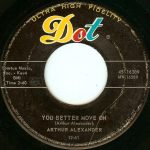
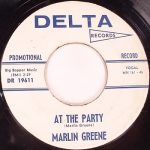
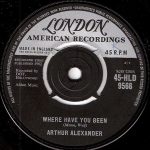
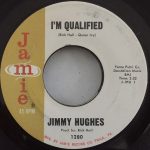
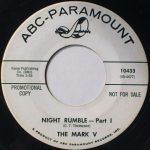
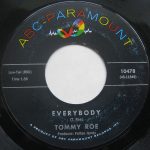
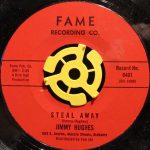
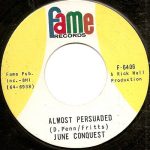
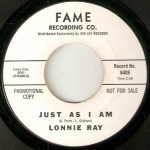
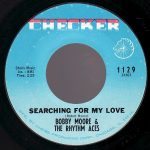
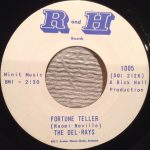
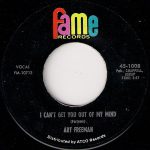
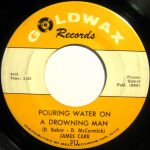
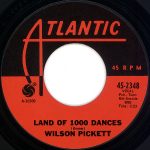
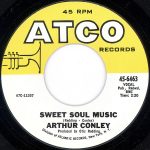
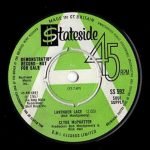
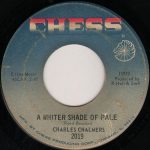
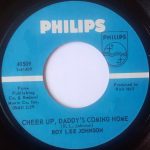
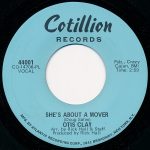
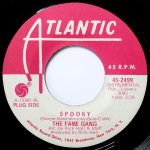
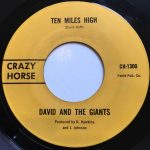
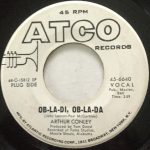
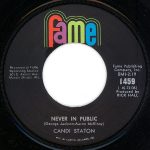
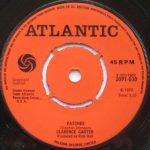
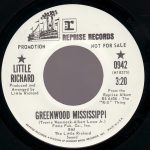
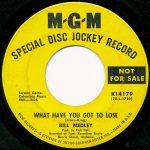
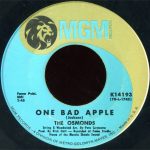
Sources:
Christopher S. Fuqua, Music Fell on Alabama (Huntsville: Honeysuckle Imprint, 1991).
Peter Guralnick, Sweet Soul Music: Rhythm and Blues and the Southern Dream of Freedom (New York: Little, Brown and Company, 2015).
Rick Hall, The Man from Muscle Shoals (Monterey: Heritage Builders, 2015).
Charles L. Hughes, Country Soul: Making Music and Making Race in the American South (Chapel Hill: University of North Carolina Press, 2015).
Norbert Putnam, Music Lessons: A Musical Memoir (Atlanta: Whitman Publishing, 2017).
Carla Jean Whitley, Muscle Shoals Sound Studio (Charleston: The History Press, 2014).
Margie Barnett and Sam Sutherland, Record World, May 19, 1979.
Terry Pace and Robert Palmer, Times Daily, August 1, 1999.




